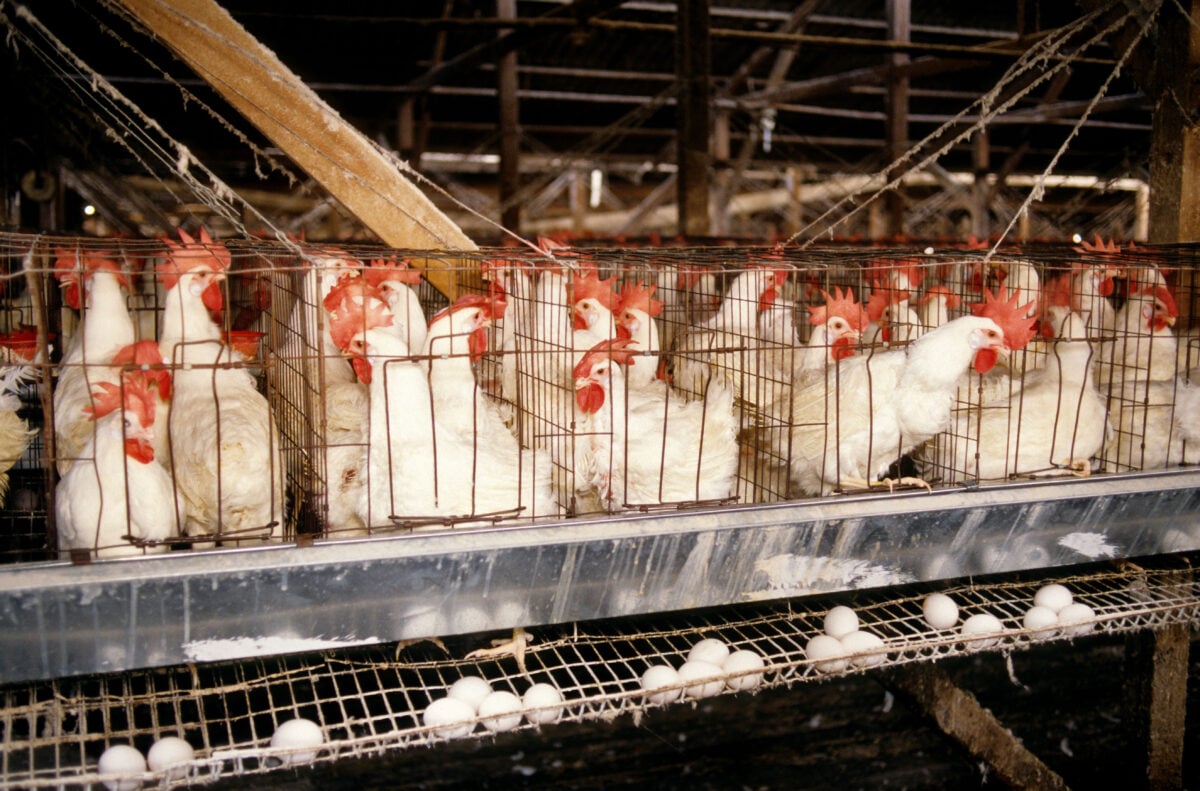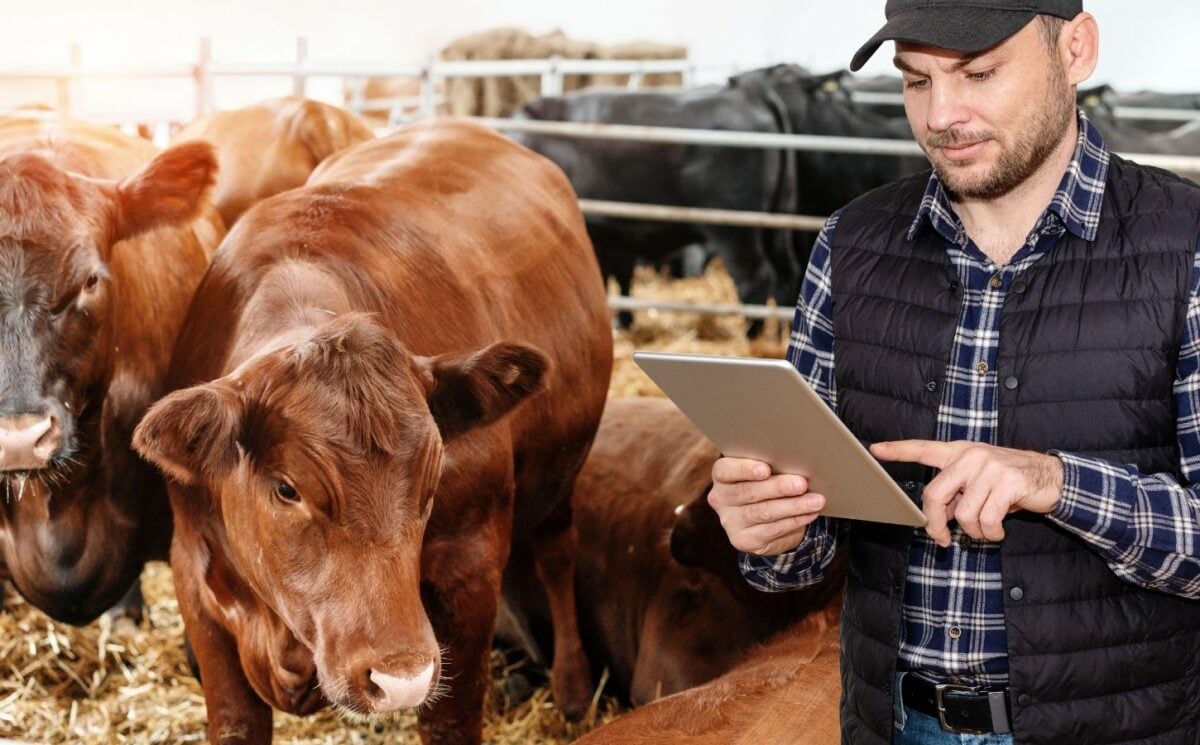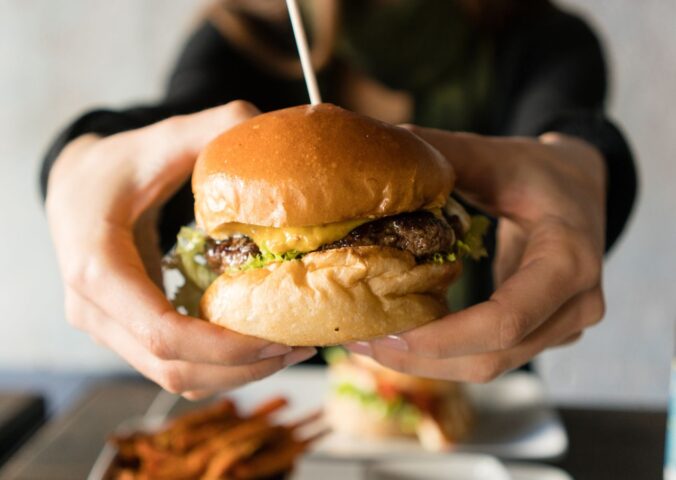Debate over the benefits and dangers of AI has moved from the realms of science fiction and into reality as the technology becomes more widespread. For animals, AI could mean further entrenching their exploitation — or it could mean liberation.
Read more: AI Technology And Fermentation Could Replace Sugar With Healthy ‘Sweet Proteins’
That’s what Sam Tucker, founder of charity Open Paws, believes. The meat industry is working on harnessing AI to make it easier and more profitable to confine and kill animals in their billions every year. But animal advocates could use it to further the cause of animal rights, including by boosting their resources and increasing the reach of their messages.
“The future of AI is at a crossroads—a tug-of-war between being used to harm animals through intensified factory farming or to help them through powerful advocacy,” Tucker told Plant Based News. “With AI rapidly becoming superhuman at persuasion, now is the pivotal time to ensure it’s directed towards compassionate purposes that promote animal well-being.”
Tucker’s goal with Open Paws is to make it hard for AI to be used in factory farming contexts. At the same time, he wants to help animal advocacy organizations access and effectively use AI in their work.
AI creeps into farming

AI is already being used on farms to help locate grazing animals, monitor health conditions, and control environmental conditions such as temperature. The argument in favor of it is that it can help improve animal welfare, alerting farmers to illness and pain, and minimizing the need for handling animals, which they can find stressful.
But relying on AI to monitor animal health and welfare could also make the worst forms of animal farming seem better than they are, as ethicists have warned. Keeping track of chicken welfare with AI, for example, is likely to be easier if the chickens are kept in cages. “High-tech” cages that use AI are already being marketed to farmers.
Read more: Bill Gates-Backed Company Makes Butter From CO2
AI could make animal slaughter more efficient, increasing the profitability of the meat industry and further entrenching its power. The industry is also using AI to make itself appear more sustainable. One company, Atarraya, makes AI-powered “shrimpbox farms” which it says are a solution to the environmental harms of conventional shrimp farming. Another company, Meyn, is using AI to automate the slaughter of chickens.
For proponents of AI in farming, it might be too optimistic to expect the industry to use the technology to the benefit of animals rather than itself. As Open Philanthropy’s farm animal welfare officer Lewis Bollard has pointed out, meat companies have been quick to adopt tech which enhances efficiency. But it has invested far less in animal welfare improvements. “Will an industry too stingy to install air conditioning or fire sprinklers really spring for AI sensors to help its animals?” Bollard writes.
AI in animal advocacy
According to Tucker, animal advocates can use AI to their own advantage. They can learn to use it for tasks such as securing funding, improve and expand research and communications to reach more people, and conduct corporate campaigns. AI is also being used by alternative protein companies to optimize ingredient choices and product formulations. This could lower the industry’s costs, making alternative proteins cheaper to buy than meat from animals.
Open Paws helps animal charities to use AI in their advocacy and builds free tools to help them. Once such tool built by Tucker is VEG3, a vegan version of ChatGPT.
“By automating routine tasks and utilizing AI’s predictive capabilities, we can exponentially increase the efficiency of animal advocacy—freeing up valuable time and resources to focus on strategic actions that drive change,” Tucker said. “AI can help us identify the most effective campaigns, prevent advocate burnout, and even forecast legislative success. Now is the time to embrace AI as a force multiplier for compassion, ensuring it serves to liberate rather than oppress.”
Another thing advocates can do is influence AI models to make them more animal-friendly. Speciesism is rife in AI, as efforts to eliminate it have been lacking. Researchers including Peter Singer have warned that this risks AI systems “normalizing” or increasing violence that humans inflict on animals, particularly in farming contexts. Tucker is working on solutions to this; Open Paws is currently seeking volunteers to give feedback on AI responses. This will help to train an AI model that is more useful to animal advocates.
Weakening the meat industry’s grip
At the same time as strengthening their advocacy with AI, Tucker wants advocates to help push for restrictions on the use of AI in animal farming. Banning the use of AI on factory farms is the big political ask, but there are smaller ones that can be pursued too. These include putting legislation in place to stop companies from using AI to increase animal stocking densities, and forcing companies to be transparent about AI-detected welfare problems and how they’re being addressed.
Though the meat industry is hugely more powerful than animal charities, advocates have some advantages on their side in this fight, Tucker believes. AI developers want data, but the meat industry is notoriously secretive, whereas advocates can choose to share their data openly. They can also make the case the anti-speciesist AI is safer, since speciesism is linked to other forms of bias against humans.
Read more: What Is Precision Fermentation, And Could It Replace Animal Farming?
“We must act now to prevent the widespread adoption of AI in factory farming, which threatens to scale animal suffering to unimaginable levels,” Tucker said. “By building unlikely coalitions—with labor unions worried about job losses due to automation, environmental groups concerned about intensified farming’s ecological impact, and small farmers facing obsolescence—we can unite diverse forces to oppose the use of AI in animal agriculture. Together, we can redirect technological progress towards creating a more compassionate and sustainable food system.”






